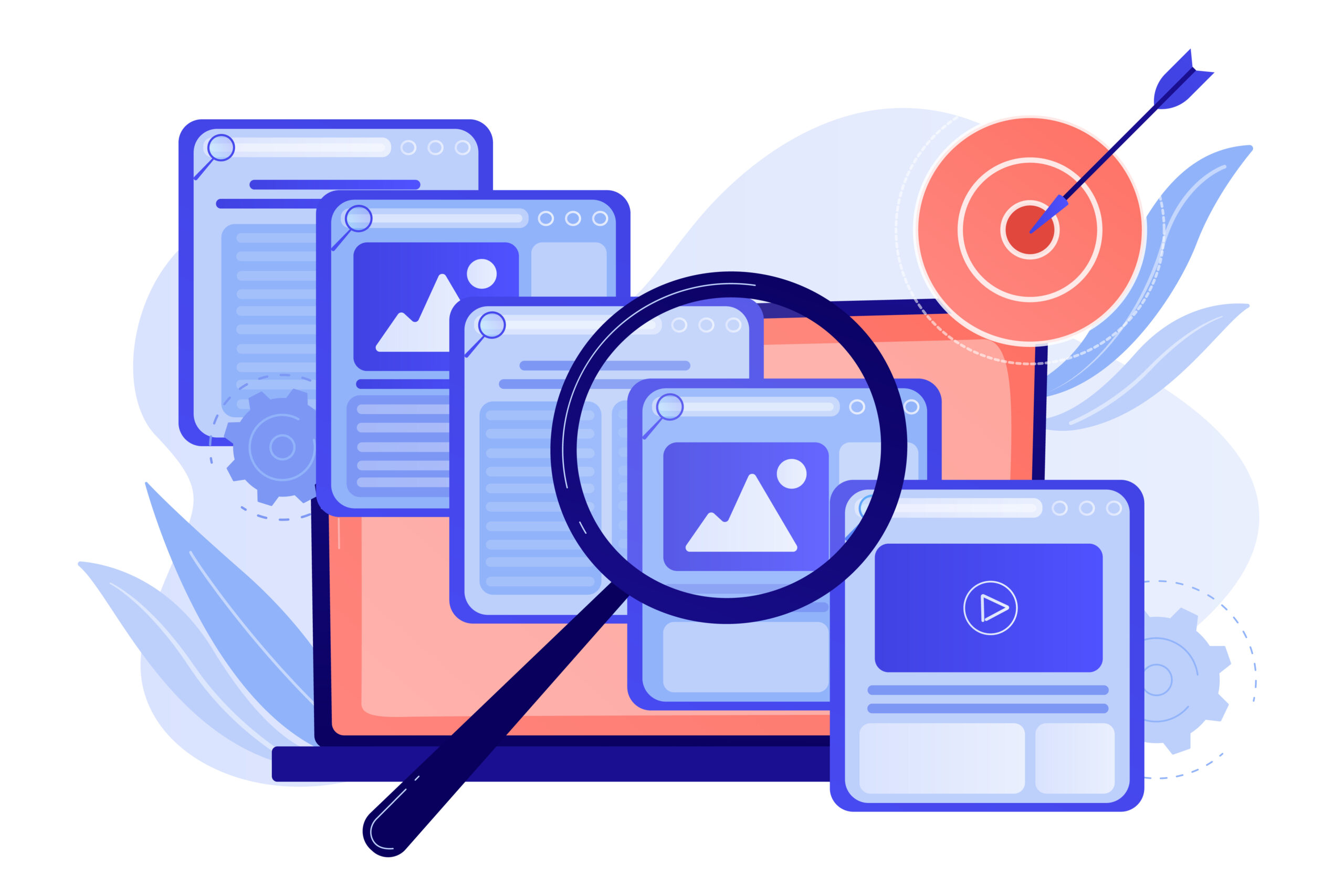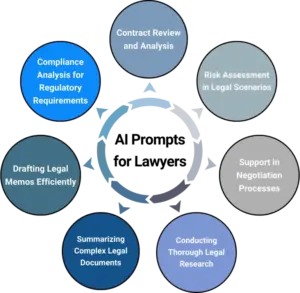Effective contract management is crucial for the success of any business. Contracts establish the rules and expectations between parties, forming the basis for fruitful relationships. However, handling contracts without a robust Contract Lifecycle Management (CLM) platform can expose organizations to risks.
In this blog, we’ll delve into why CLM software is crucial, and the dangers without a CLM platform. Also how organizations can mitigate these risks by adopting a dependable CLM solution. We’ll also explore how the absence of a CLM platform impacts a company and offer advice on choosing the right CLM system.
Understanding the financial consequences of not using a CLM platform. Moreover, how CLM platforms boost business performance empowers organizations to improve their contract management processes for sustained success.
Understanding Contract Lifecycle Management (CLM)
Contract lifecycle management (CLM) refers to the process of managing contracts from the beginning to execution and beyond. It involves the creation, negotiation, approval, execution, and ongoing management of contracts. A CLM system is a computer program that makes these tasks easier by doing them automatically. It gives organizations one place to handle all their contracts.
The contracting process involves multiple stages, including contract creation, negotiation, and approval. These stages can be time-consuming and complex, involving various stakeholders and legal considerations.
A CLM system makes these tasks easier by giving you standard forms, automatic steps, and keeping all contract information in one place. This makes everything faster, more accurate and makes sure you follow the rules for contracts from start to finish.
What is the Importance of CLM?
CLM is important because it helps contracts get managed better, makes risks smaller, and makes businesses work better. With a CLM platform, organizations can streamline contract processes, automate workflows, and gain better visibility into contract data.
This enables organizations to make informed decisions, optimize contract performance, and mitigate risks. Additionally, a CLM platform provides analytics and reporting capabilities, allowing organizations to gain insights and drive strategic decision-making based on contract data.
By implementing a CLM system, organizations can improve contract management practices, increase operational efficiency, reduce costs, and ultimately drive business success.
Related Article: Master Contract Management For Small Business: Guide
What are the Risks Without a CLM Software?

1. Inefficiencies in Contract Processes
Without CLM software, organizations face issues in contract processes that harm business performance. Manual contract management is time-consuming and error-prone, which lowers overall productivity.
Without a CLM software tool automating and standardizing tasks, organizations encounter challenges such as:
- Wasted time and effort: Manual contract management processes require significant time and effort, diverting resources from other valuable tasks.
- Increased contract cycle times: Lack of automation leads to extended contract cycle times, delaying important business activities.
- Incorrect contract data: Without a CLM software, organizations may find it difficult to maintain correct contract data. It can increase the risk of errors.
- Missing contract dates: Handling contracts by hand makes it more likely to miss important dates. Like when contracts need to be renewed or ended, might be forgotten.
- Higher costs: Inefficient contract processes can lead to higher costs, including legal disputes, penalties, and missed revenue opportunities.
2. Strains on Resources
The strain on resources without a CLM software can hinder productivity. It can increase costs, and impact the overall effectiveness of contract management processes. These strains can have a significant impact on an organization, leading to additional risks and costs. Some key considerations related to resource strains without contract management software include:
- Sales team productivity: Manual contract creation and management tasks can be time-consuming for sales teams. Also, it reduces their focus on revenue generation.
- Legal team efficiency: Without a CLM software, legal departments might find it hard to see all the contract information. And to manage how contracts move through the steps they need to follow.
- Increased costs: The absence of CLM software can make costs go up because you might need to hire more people or pay others to handle contract management jobs.
- Limited contract visibility: Handling contracts manually makes it hard for teams to see all the contract information. That can cause them to miss chances and take longer to do things.
- Slow contract review processes.: Without CLM software, legal teams might have difficulty quickly looking at, discussing, and agreeing on contracts. This could make mistakes more likely and slow things down. This could lead to more mistakes and slower progress.
3. Extended Contract Cycle Times
When a company doesn’t have CLM software, it takes longer to deal with contracts. This affects different parts of the business, like how things work, how customers feel, and how much money is made. These extended cycles happen because manual contract management lacks automation. Here are some specific risks and costs tied to longer contract cycles:
- Delayed contract approvals: Manual contract approval workflows can lead to delays, impacting business activities, contract negotiations, or project timelines.
- Increased contract turnaround times: Without automation, contract creation and management take longer, affecting contract cycle times and customer satisfaction.
- Missed revenue opportunities: When contracts take longer, businesses might miss chances to make sales. It can also delay starting projects, or forget to renew contracts on time.
- Decreased operational efficiency: Longer contract cycle times can lead to process bottlenecks, increased coordination efforts, and reduced operational efficiency.
- Lower customer satisfaction: Delays in contract creation, approval, or execution negatively impact customer satisfaction, potentially resulting in lost business or damaged relationships.
4. Increased Potential for Human Errors
Another risk of not having a CLM tool is the increased chances of human errors. Which can have severe consequences for organizations. Human errors in contract management processes can lead to inaccurate contract terms, data, or calculations, impacting contractual agreements and overall business operations. Some key points to consider regarding human errors without a contract management system include:
- Contract accuracy: Manual contracting can increase the risk of errors, leading to inaccurate contract terms, data, or calculations.
- Compliance risks: Without contract management software, organizations may struggle to ensure compliance with legal, regulatory, or internal guidelines, increasing legal and financial risks.
- Contract data integrity: Human errors in contract management can result in data inconsistencies, affecting contract analytics, reporting, and decision-making processes.
- Inefficient contract review: Doing things manually can cause problems like getting stuck, and waiting longer. Also not understand each other well when checking and approving contracts. This makes it harder to manage contracts efficiently from start to finish.
- Reputational damage: Human errors, such as contract mismanagement or missing important contract dates. It can damage the reputation and relationships with clients, suppliers and partners.
Related Article: How To Manage Contracts Efficiently: Best Practices
How CLM Software Enhances Business Performance

Contract lifecycle management (CLM) platforms play a crucial role in enhancing business performance. A reliable CLM solution provides organizations with the tools and capabilities to optimize contract management practices, improve efficiency, and drive strategic decision-making.
CLM platforms enhance business performance through various means, including:
Streamlining Contract Processes
Implementing a CLM platform offers a significant advantage by streamlining contract processes. Without such a platform, organizations encounter difficulties in managing contracts efficiently, resulting in wasted time and effort. Manual contract management processes are time-consuming and prone to errors, leading to longer contract cycles and inaccurate data.
Furthermore, manual processes increase the likelihood of missing important contract dates, such as renewal or termination deadlines. This can lead to financial consequences such as legal disputes, penalties, and missed revenue opportunities. By adopting a CLM platform, organizations can automate and optimize contract workflows, ensuring quicker contract creation, approval, and execution.
This streamlines the contracting process, reduces errors, and boosts overall productivity. CLM platforms also offer centralized contract repositories, providing easy access and visibility into contract data. This facilitates better contract management and reduces the risk of data loss.
Improving Compliance and Minimizing Risks
CLM software helps to improve compliance and minimize risks. Without a CLM platform, organizations may struggle to ensure compliance with legal, regulatory, or internal guidelines.
This can expose organizations to legal and financial risks. Manual contract management processes increase the potential for human errors, leading to inaccurate contract terms, data, or calculations. This can result in compliance breaches and financial repercussions.
Furthermore, manual processes can lead to bottlenecks, delays, and confusion in contract review and approval workflows, impacting overall contract lifecycle management efficiency. CLM platforms provide automation and standardization, ensuring compliance with legal and regulatory requirements.
They also offer advanced security features to protect sensitive data, mitigating the risk of data breaches. By using a CLM platform, organizations can make sure they follow the rules, keep important information safe. Also to make sure the contract information is correct.
Enhancing Analysis and Reporting Capabilities
CLM platforms offer enhanced analysis and reporting capabilities, making it easier for organizations to use contract data for strategic decision-making. Without a CLM platform, organizations might find it hard to see all their contract information, which makes it tough to notice patterns, risks, or chances to do better. This can hamper effective contract management and strategic planning.
CLM platforms offer strong analysis tools for customized reports, tracking contract performance, and finding areas to improve. These platforms also feature intuitive dashboards that offer real-time visibility into contract data. This enables stakeholders to make well-informed decisions.
Organizations can use advanced tools to check if contracts are followed, track important signs of success, and find ways to spend less money. CLM platforms empower organizations to base their decisions on data, optimize their contract strategies, and boost overall business performance.
Related Article: How To Manage Contracts Efficiently: Best Practices
Selecting the Right CLM Platform for Your Business

An effective CLM system should possess essential features that enable organizations to streamline contract processes, improve compliance, and enhance overall contract management efficiency. Some key features to look for in a CLM system include:
- Automation capabilities: A reliable CLM solution should offer automation features for contract creation, management, approval workflows, and renewal processes. This reduces manual effort, minimizes errors, and accelerates contract cycle times.
- Contract analytics: Look for a CLM platform that provides comprehensive contract analytics, including performance tracking, risk identification, and cost-saving opportunities. Advanced analytics enable data-driven decision-making and process improvement.
- Integration capabilities: Choose a CLM system that seamlessly integrates with existing systems such as CRM or email platforms. Integration ensures data visibility, process efficiency, and collaboration across different departments and teams.
- Contract database: A good CLM platform should be like a central place where all contract information is kept. It should be easy for everyone involved in managing contracts to find what they need. It helps to control different versions and see what’s going on.
- Ongoing support: Make sure the CLM vendor continues to help, teach, and update so that you get the most out of the software. This helps you adjust to any changes in how contracts are managed and deal with new problems.
Evaluating CLM Vendors: What to Look For 
When evaluating CLM vendors, organizations should consider several factors to ensure they choose the right solution for their needs. It is important to involve key stakeholders and procurement teams in the evaluation process. Some factors to consider when evaluating CLM vendors include:
- Vendor reputation and experience: Assess the vendor’s track record, customer reviews, and industry experience to determine their reliability and credibility.
- Scalability and customization: Check how much you can change and adjust the CLM solution to fit what your organization needs as it grows.
- Integration capabilities: Think about whether the CLM platform can easily work together with the systems you already use, such as CRM or ERP, to ensure smooth data transfer and process efficiency.
- Security features: Evaluate the security measures implemented by the vendor to protect sensitive contract data and ensure compliance with data protection regulations.
- Support and training: Think about how much help and training the vendor gives to make sure the CLM system is set up smoothly and you get help whenever you need it.
By carefully looking at CLM vendors using these standards, organizations can make smart choices and pick a trustworthy CLM solution that fits their contract management needs.
Related article: How to choose the right CLM software
Frequently Asked Questions
Can Small Businesses Benefit from CLM?
Yes, small businesses can get help from CLM. These platforms can grow as the business grows, so small businesses can handle more contracts without problems. Additionally, these platforms are cheap and can do contract work by themselves, so small businesses don’t have to hire more legal staff. This enables small businesses to streamline their contract management processes, improve efficiency, and mitigate risks.
How Does CLM Affect Contract Renewal and Compliance?
CLM platforms greatly impact contract renewal and compliance. These platforms streamline contract management processes, ensuring timely contract renewals and enabling organizations to meet their legal obligations. CLM platforms ensure better compliance by automating tasks and standardizing processes. This lowers the chance of breaking contract rules or legal laws.
Conclusion
In conclusion, using a Contract Lifecycle Management platform is really important. It helps make contract work easier, follow rules better, and make the business perform better. The financial implications of not utilizing a CLM platform can lead to losses in revenue and increased operational costs.
Choosing the correct CLM system and following best practices can transform businesses. Real-life case studies show this. To lower the risks such as wasted time, resource shortages, lengthy contract cycles, and errors. Investing in a quality CLM solution is vital for effectively managing contracts.






